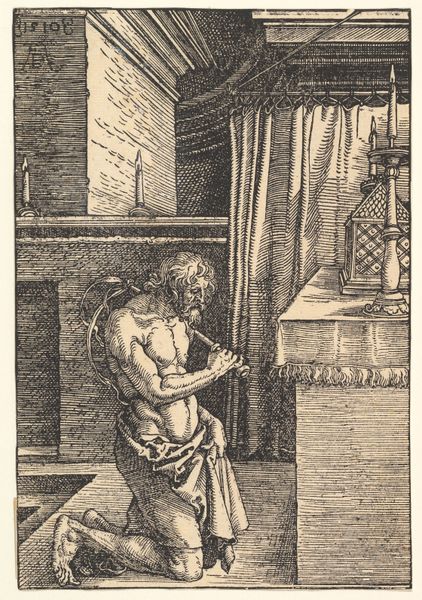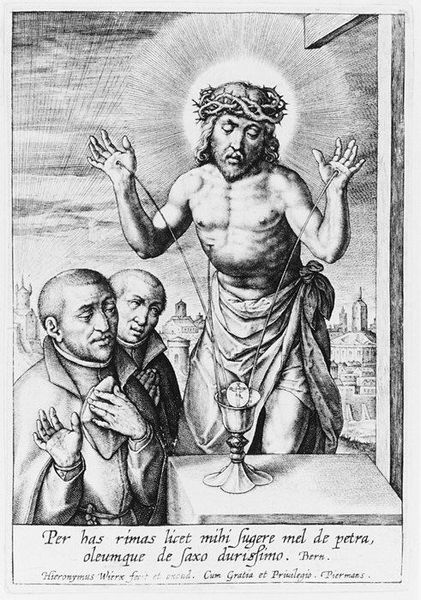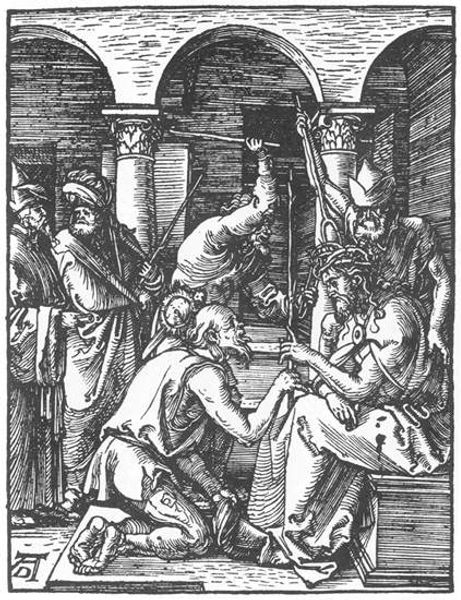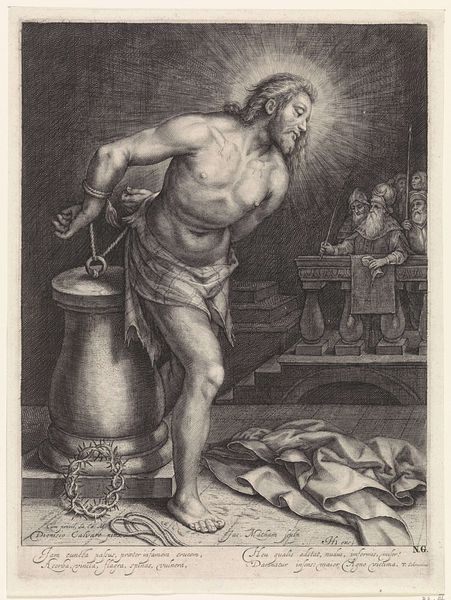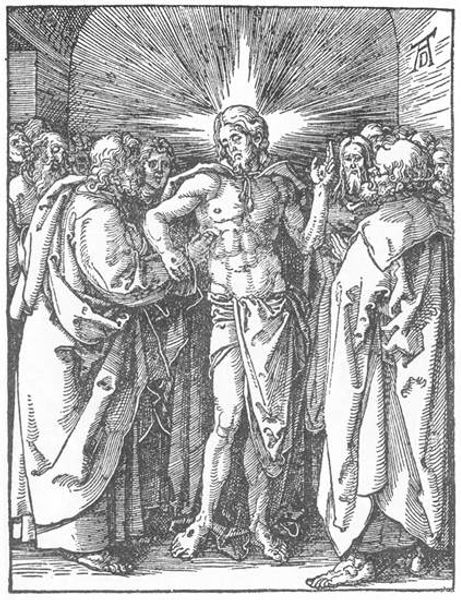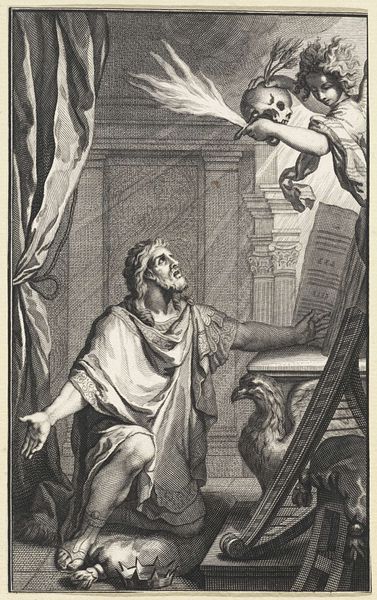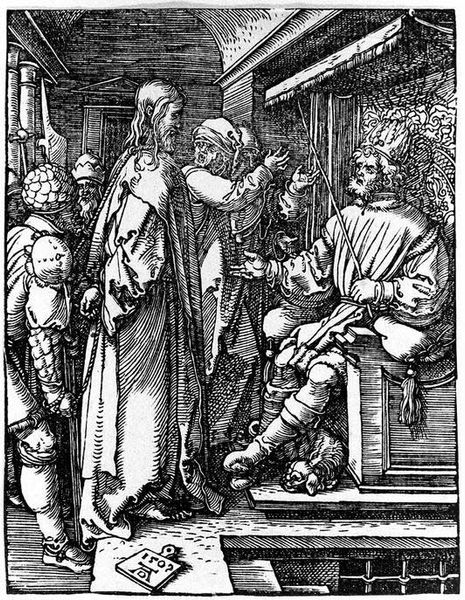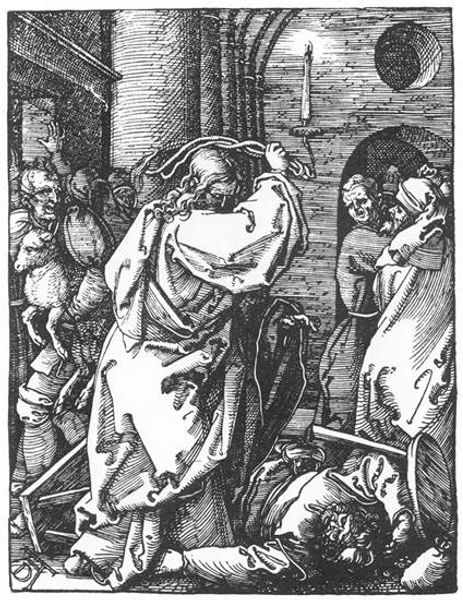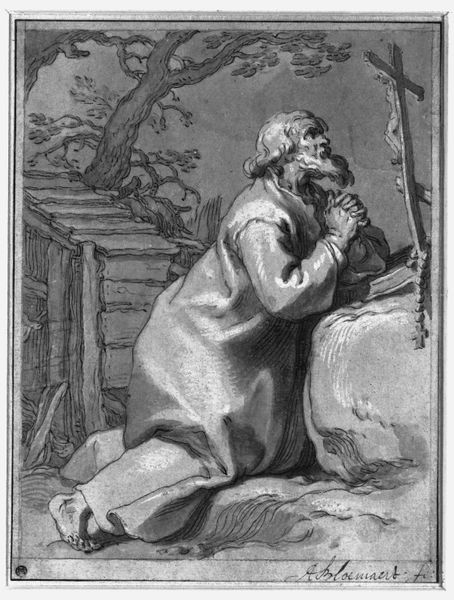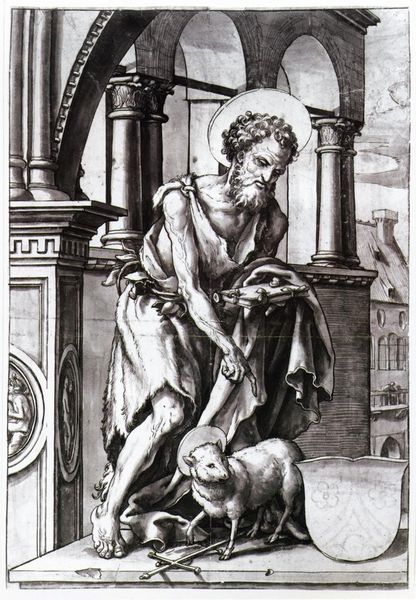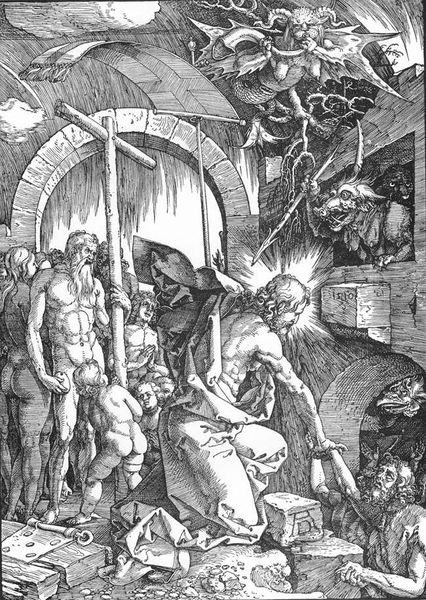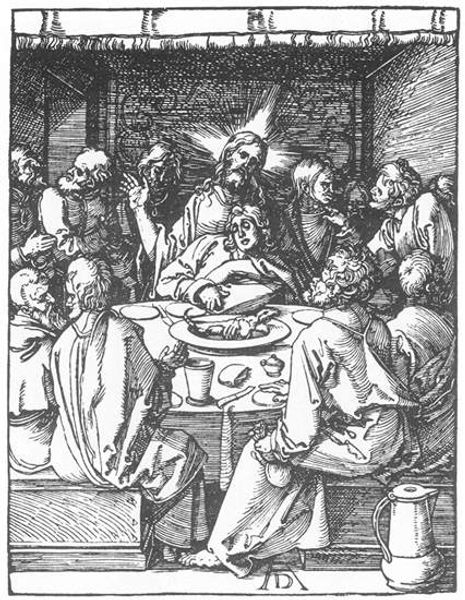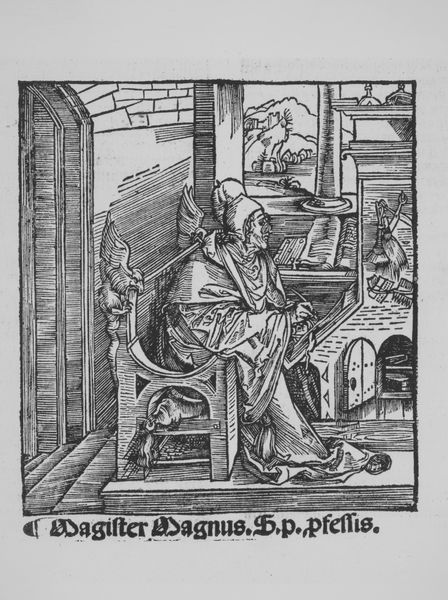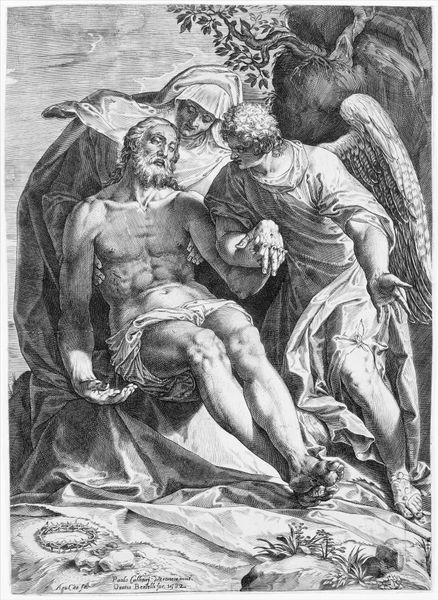
drawing, print, intaglio, engraving
#
drawing
#
narrative illustration
#
narrative-art
# print
#
intaglio
#
figuration
#
form
#
11_renaissance
#
men
#
line
#
history-painting
#
northern-renaissance
#
engraving
#
realism
Copyright: Public domain
Editor: Alright, next up is "The Penitent," an engraving by Albrecht Durer, from 1510. There's this feeling of solitude that I get from this piece, a sense of introspection. What do you make of this image, in terms of its historical background or the techniques used? Curator: Introspection...Yes, Dürer really gets under your skin, doesn't he? Now, consider the period: The Renaissance, yet with a Northern flavor. The crispness of line, the near photographic detail achieved solely through the burin—that little tool pushing through the copperplate—it’s staggering! But beyond the technical brilliance, you’ve nailed the mood, that air of profound solitude and… guilt. Think of the religious fervor of the time, the constant reckoning with sin and redemption. I think it would be useful to consider "Penitent" as a kind of coded self-portrait, or perhaps as Durer asking whether art could ever truly reconcile faith and doubt? Editor: So, you are seeing something beyond a simple religious figure. Is this reading informed by other works that he did? Curator: Precisely! This wasn't simply illustration; he was deeply invested in this dialogue. It’s a soul wrestling, carved in metal, for eternity! Do you feel that? Editor: It's definitely present! He wasn't afraid to inject these big existential questions into the process. Seeing that gives the work more gravity. Curator: Yes, precisely, that is something that the work definitely conveyed to me, and hopefully it gave some new information for our audience too!
Comments
No comments
Be the first to comment and join the conversation on the ultimate creative platform.
